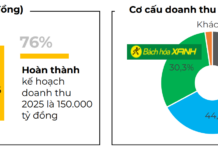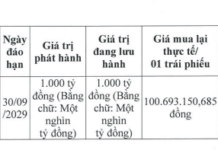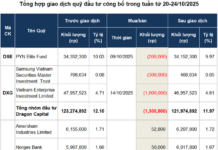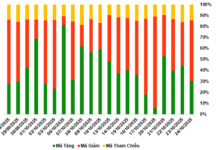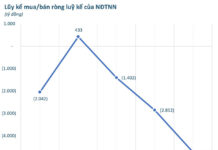Reassuring Talented and Virtuous Individuals to “Rest Assured” in Their Work
The Ministry of Home Affairs has presented a proposal to amend the Law on Cadres and Civil Servants, suggesting changes to be included in the law-building program and presented to the National Assembly for consideration in 2025. The drafting agency proposes to develop five specific policies for managing cadres and civil servants.
Among the suggestions, the Ministry of Home Affairs recommends innovating the management mechanism for cadres and civil servants based on job positions. This means using job positions as the foundation for recruitment, evaluation, planning, and implementing policies and regimes concerning cadres and civil servants. Additionally, it establishes a competitive mechanism based on job performance, striving for a merit-based civil service.
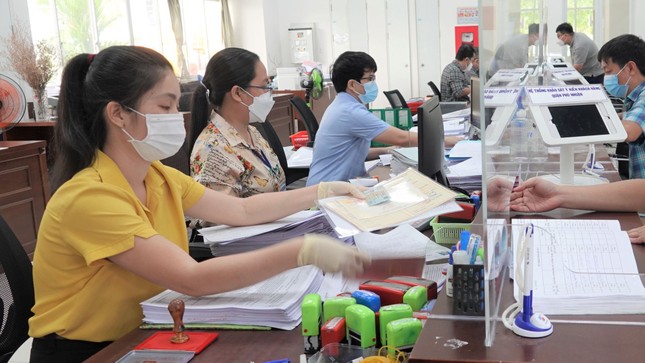
The Ministry of Home Affairs proposes amendments to the Law on Cadres and Civil Servants (illustrative image).
The Ministry of Home Affairs suggests amending the regulations on job positions to align with the requirements of each sector and field. They also propose gradually eliminating the provisions on the ranks and rank structure of civil servants, and perfecting the management, utilization, and salary system for cadres and civil servants based on job positions.
The Ministry of Home Affairs will refine the provisions on the rights and obligations of cadres and civil servants, as well as the things that “cadres and civil servants are prohibited from doing.”
According to the Ministry of Home Affairs, “This policy aims to institutionalize the Party’s guidelines and policies on encouraging and protecting cadres and civil servants who are dynamic, creative, bold in thinking and acting, and willing to take responsibility for the common good. It also emphasizes the authority and responsibility of cadres and civil servants, especially leaders, to set a positive example.”
The draft law is constructed to prohibit manifestations and acts of evasion, passing the buck, or failing to perform or adequately perform assigned duties. Additionally, this amendment introduces a mechanism for excluding, exempting, or mitigating responsibility for cadres and civil servants who propose innovative and creative solutions.
“This policy creates an attractive and compelling environment, providing comprehensive support to ‘retain’ individuals with high capacity, qualifications, and moral virtues, allowing them to rest assured in their work,” emphasizes the Ministry of Home Affairs.
Revising Regulations on Resignation and Removal from Office
Furthermore, the drafting agency supplements and perfects provisions on the ethics and communication culture of cadres and civil servants, as well as things that they are prohibited from doing. They also add regulations on the responsibility of cadres and civil servants, especially leaders, to set a positive example. These provisions will serve as a basis for filtering and replacing irresponsible, incompetent, or unpopular civil servants.
In this amendment, the Ministry of Home Affairs also proposes policies to perfect the regulations and innovate the management of cadres and civil servants, aligning with the requirements of promoting digital transformation and building a digital government. This involves refining the provisions on managing cadres and civil servants based on data and digital technology.
Another crucial policy proposed by the Ministry of Home Affairs is to perfect the regulations to ensure consistency and unity with the Party’s regulations and the legal system.
It is expected that the regulations on resignation and removal from office for managerial civil servants will be amended, and provisions on work arrangements for disciplined leading cadres and civil servants will be modified or supplemented.
Additionally, this law amendment aims to achieve interconnectivity and equality between the cadre and civil servant teams at the commune level and those in the political system, ensuring a unified civil service from the central to the provincial, district, and commune levels.
The New Threshold for Procurement Contracts: Raising the Bar to 300 Million
On November 29, with an overwhelming majority of 444 out of 446 National Assembly delegates voting in favor (accounting for 92.69% of the total number of National Assembly deputies), the National Assembly passed the Law amending and supplementing a number of articles of the Law on Planning, Investment Law, Law on Investment in the form of Public-Private Partnership, and the Bidding Law.
The Department of Labor Reports to the Prime Minister a 9-Day Consecutive Holiday for Tet
The Ministry of Labour, Invalids and Social Affairs has announced that, due to the unique calendar configuration in 2025, where the days before and after the Lunar New Year fall on a Saturday and Sunday – which are already part of the regular weekend break for civil servants – they will be entitled to a five-day Lunar New Year holiday, along with the standard four-day weekend break as per regulations.
“The Perils of Being a Perpetual Money Lender”
“I find it hard to believe that we are handing over money for others to spend,” exclaimed National Assembly Deputy Le Quan, referring to cases related to corporate bonds. Emphasizing the need for proper regulations, he pointed out that the Vietnamese bond market has not been developing as per market rules. To mitigate risks for investors, he proposed holding auditing firms accountable.
“A Proposal to Reduce the Standard Salary Increase Period for Civil Servants”
The current salary increment structure for civil servants is inadequate and outdated. The long wait between increments and the small increase amounts fail to keep up with the rising cost of living, leaving civil servants struggling to make ends meet. This outdated system needs an overhaul to better support those who serve the public.













